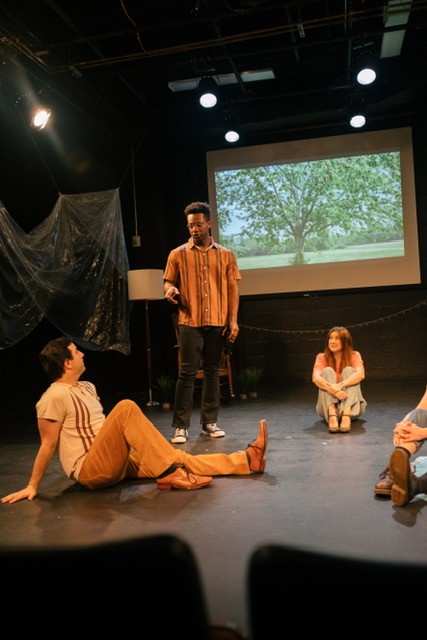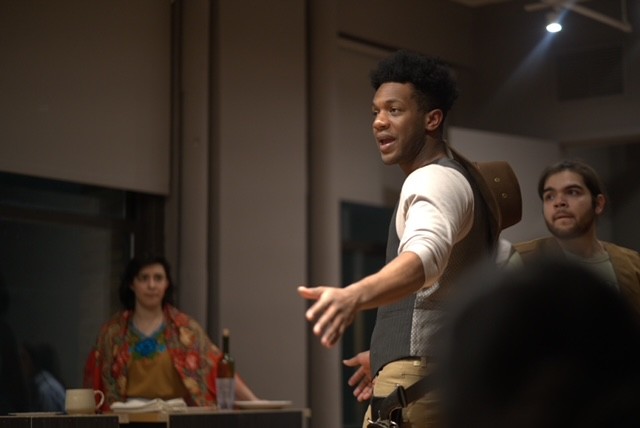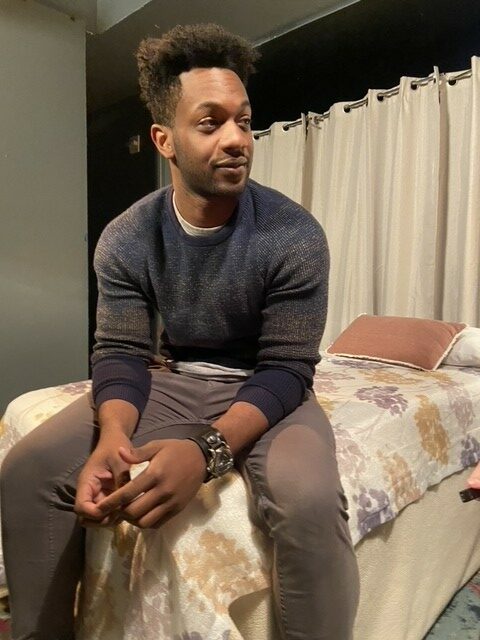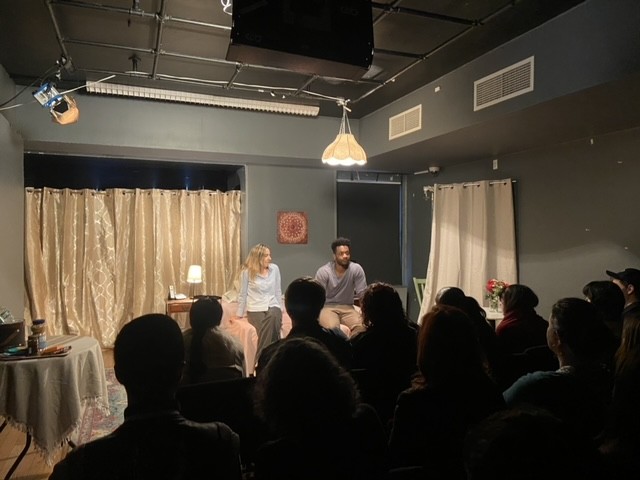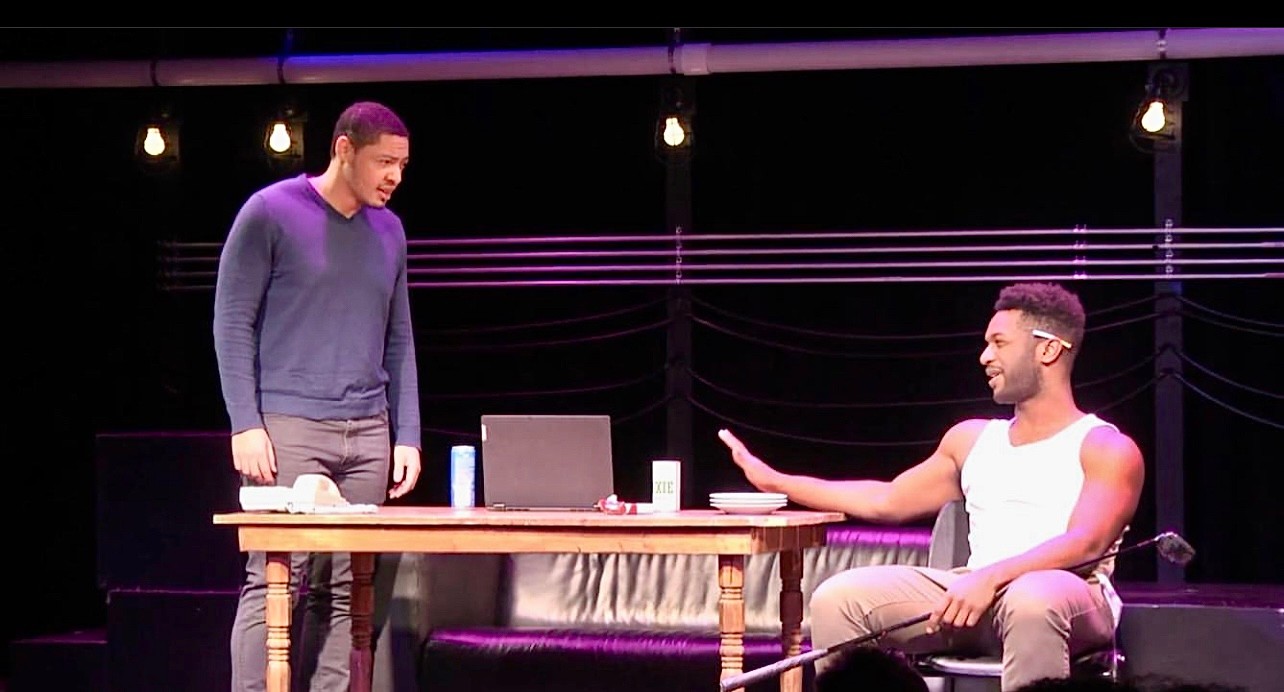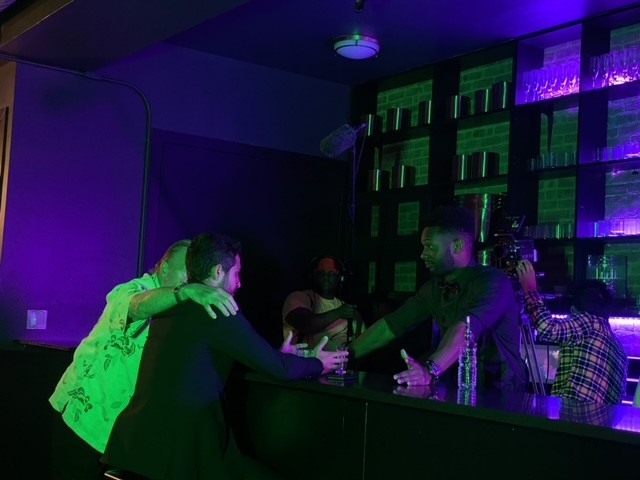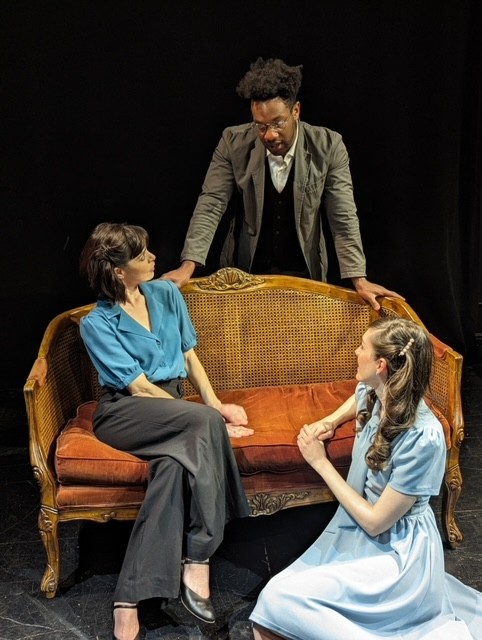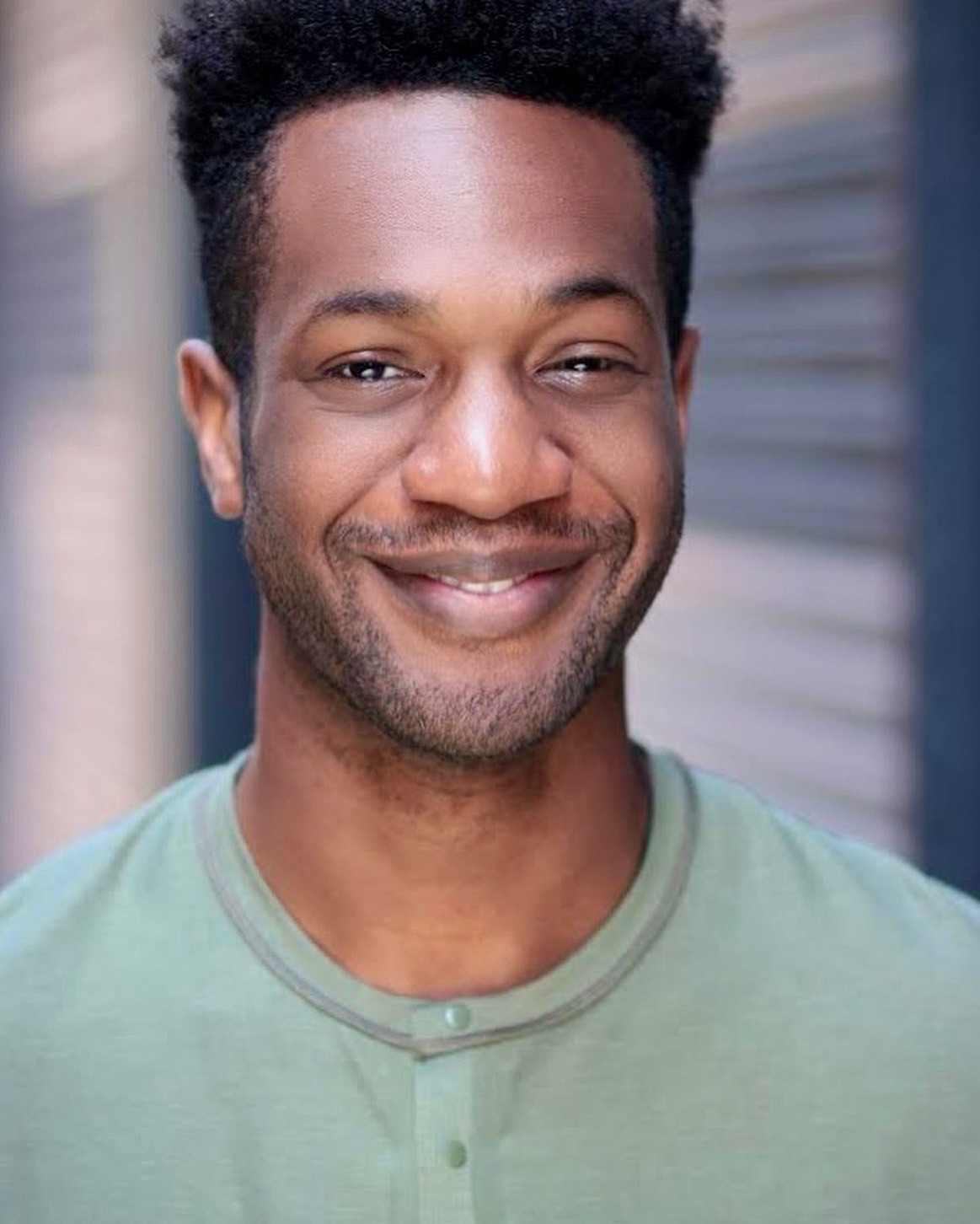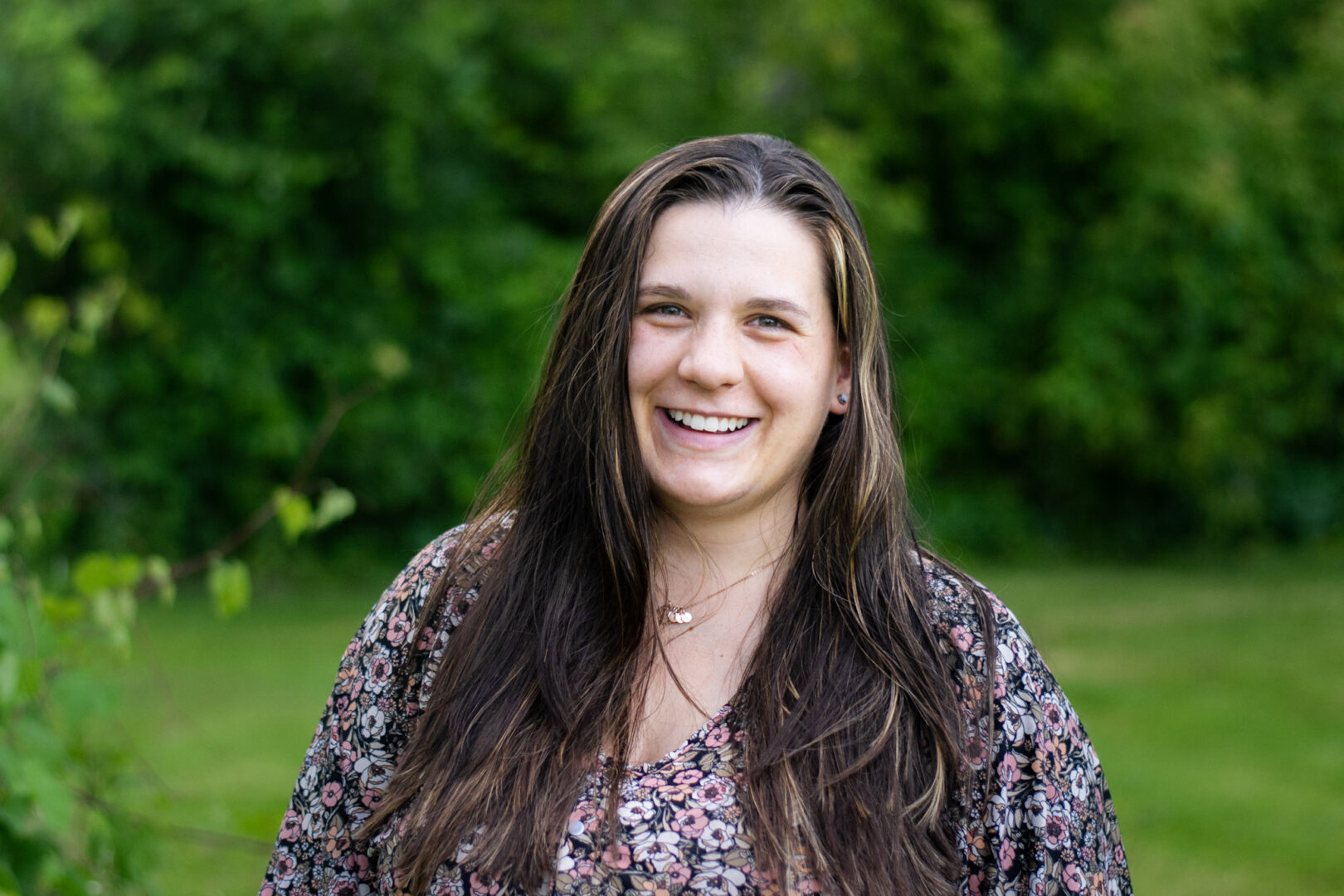We caught up with the brilliant and insightful Connor Wilson a few weeks ago and have shared our conversation below.
Connor, thanks for taking the time to share your thoughts with us today. We’re excited to dive into your story and your work, but first let’s start with a broader topic that might be stopping many of our readers from pursuing their dreams – haters, nay-sayers, etc. How have you managed to persist despite haters and nay-sayers that inevitably follow folks who are doing something unique, special or off the beaten path?
I find, ironically, the biggest hater in my life has always been myself. I’ve been fortunate in that growing up I had loving parents and siblings and good friends. Even through HS and college I feel like most of the people I came across in the arts where generally positive people, who are usually willing to help or offer words of encouragement. The problem becomes, translating that to self talk. We’re our own harshest critics. Which always surprised me, because as a kid, I feel like the books, movies and shows I watched always told me that the resistance we faced would always be external, but rarely did you ever see a protagonist dealing with his own mind telling them they were no good. And I’ve struggled with that for many years. I feel like many of us do. To help with that, for myself, I like to keep a timeline of before and after. 2 weeks, 2 months, 2 years ago, doesn’t matter. For me, if I can see, and visibly measure the progress, it’s easier for me to have a more persistent outlook on the future. What do I know now that I didn’t know then? Who have I met? What have I seen? How do I look? It doesn’t have to be drastic either. It’s all about seeing how time is actually helping you form the character that is you, and it’s therefor necessary, not something to be worried about.
Thanks, so before we move on maybe you can share a bit more about yourself?
Well, I’m Connor Wilson. Small town kid from Alaska. I was born and raised there and from an early age I’m told I had an interest in acting based on my ability to memorize and then perform scenes I’d seen in movies. Specifically Willy Wonka and Spider-Man if you care to know. I grew up with 3 brothers and 1 sister. I was smack dab in the middle. And was homeschooled K-12 so you can imagine I had every right to be a serial killer. Though I took a different interest in people I was always fascinated in talking to people. Who they were, what they did, where they were from. Simply conversing with people. Even as a kid, I never met a stranger to me. Which I believe was fueled by my performative personality. Naturally I was a born actor, but it didn’t come to pass, as in Alaska, there’s really no scene for acting, or film and theater. So I shelved that dream. I took up sales. And that became my life from about age 17-24. Inside sales, door to door, marketing. I was good at it, so why should I not? But around 2020 I realized I simply wasn’t satisfied. I knew I wasn’t because I went to Hawaii one spring and when it was time to come home from vacation and return to work, I realized I hated my job. Hated the schedule, the banality of it and thought, what if I had a job that I actually enjoyed? What was that thing I had always wanted to do, but never did because it “wasn’t realistic”? And that was that. I, at 24 started looking up acting schools in New York and within 5 months, I had moved to New York and had begun my journey in acting. That was almost 3 years ago and after a couple years of school, several plays, and a few films later, I’ve started living that life that I used to think was fantasy.
If you had to pick three qualities that are most important to develop, which three would you say matter most?
#1 I would say is that being is infinitely more interesting than ‘playing at’. In an actors context. What I mean by that is we as human beings naturally do things that are interesting and real. But we aren’t thinking about if “this is how a person would do this.” By virtue of being a person, you are doing, and that is already interesting.
A tired person isn’t thinking “Do I look tired? Should I be yawning more?”. A tired person want’s to go to bed. They’re thinking about when they can finally sleep. Likewise, a drunk person isn’t thinking about acting drunk. A drunk wants another drink.
And most importantly, in an argument, you aren’t thinking “Does this sound like an argument? Should I be yelling so they know it’s an argument and I’m emotionally charged by this? Am I physically animated enough for this to look like an argument?”. No. In an argument, you’re thinking that I’m right, you’re wrong and this is why. That’s it. And if you allow yourself to be naturally effected by any given situation, your body will naturally respond and whatever or however it comes out will be 100x more interesting than what you could come up with in 5 minutes or 5 years.
#2 Is being okay with being wrong. I feel as people we’re all so concerned with being right about an issue, a way of life, a certain way of doing something, that we are immediately defensive about something different because we’ve invested so much time of our lives up to this point to this one idea or opinion or way of navigating life. And it’s perfectly fine to change your mind about something even if you’ve spent a majority of your life being a certain way. This applies to any area of life. Always be open to change.
#3: Be comfortable speaking to others. It’s probably the most valuable skill that I’ve acquired anyway. So many of us spend a majority of our lives talking to others and never learn to get comfortable with it. Whether that be small talk, long form conversations or simply greeting someone. And this has been made easier for me based off of two principles that thankfully my folks, who were public speakers, taught me early on: First, no one will remember that embarrassing thing you said or did in 2 hours. We’re so preoccupied with our lives that we don’t have time to dwell on social faux pas made by other people. Think about the last time someone embarrassed themselves in front of you. Do you remember it? Odds are you hadn’t thought about it in ages. Second, don’t be afraid to pause and think of something to say or respond. It’s NEVER as long a pause as it feels like to you in real life. Our brains move at light speed and what feels like it took you 10-15 seconds to formulate and respond, probably only was actually 2-3 seconds. ‘Nuff said.
One of our goals is to help like-minded folks with similar goals connect and so before we go we want to ask if you are looking to partner or collab with others – and if so, what would make the ideal collaborator or partner?
I’ll breifly say that my experience with modern films and plays is that stories that require massive budgets to tell negatively impact the story, To many shows are done with spectacle in mind and the director/producer/writers think that this will be enough to captivate an audience. I’m of the mind that we need to start scaling back MASSIVELY. If an idea requires major sfx or set pieces to tell, a writer or filmmaker should think about how to tell convey this very important information in a smaller way. Maybe it’s indicated or hinted at. And then LET THE AUDIENCE WORK FOR THEIR MEAL. An audience loves to participate! Think how fun it is to solve a murder mystery along with the detective, or figure out how a couple will fall apart and get back together in a romcom, or how a play might end with all the information gathered up to that point. Audiences are VERY smart. FIlmmakers and playwrights should be too.
Can’t show blood and gore on tv in the 60s? Hitchcock used shadows and chocolate syrup!
Or how often have you seen a play with a floating set? An indication of an office. A chair and a desk. The audience can always fill in the blanks with a few context clues.
If you’re someone who’s interested in prioritizing writing and story telling over budget and over explaining, I want to collaborate with you.
Contact Info:
- Instagram: @connorbenwilson / groupseetheatercompany
